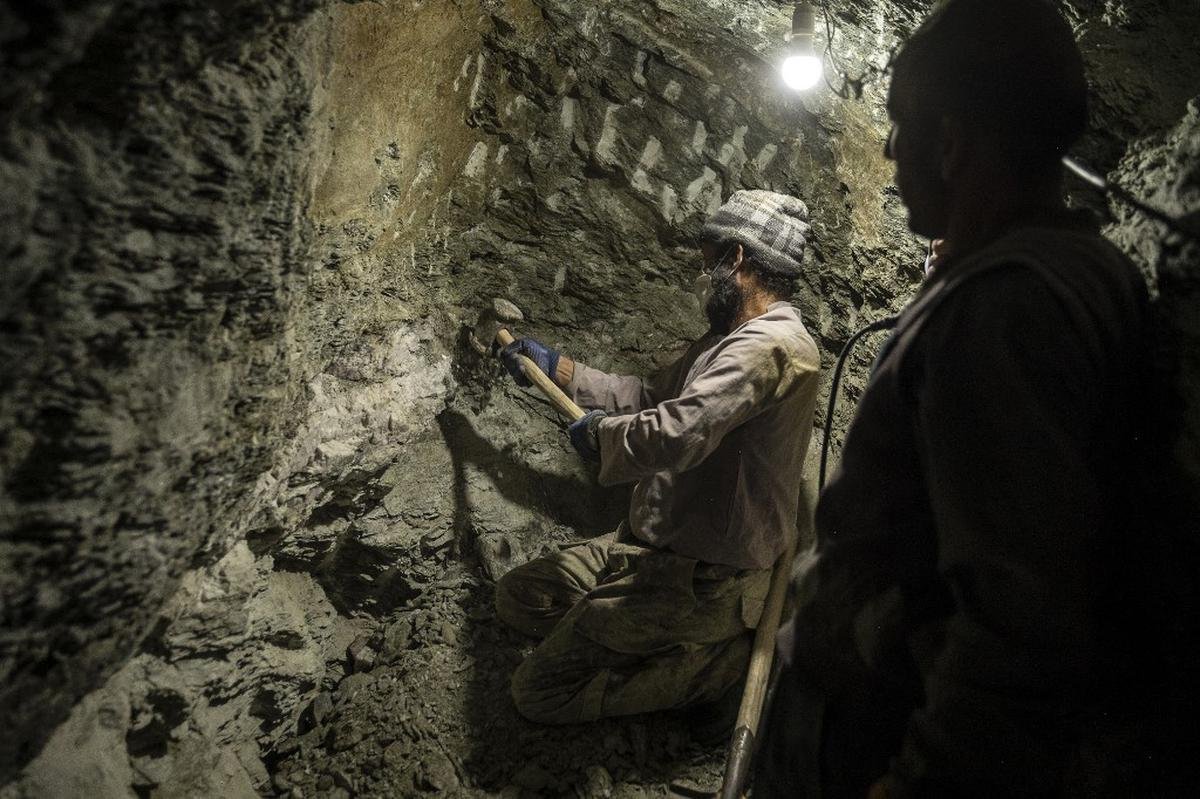Tearing off a piece of mouldy flatbread, Homayon gulped tea in a brief reprieve from the din of the machines he and a dozen other men were using to dig for gold on a mountainside in northeastern Afghanistan.
The 30-year-old found little work as a mechanic in nearby Faizabad city, so he banded with other unemployed men to try their luck carving out a living in the rocky mountains that dominate Badakhshan province.
“Five, six of us were jobless, we came here to see if we can find anything,” Homayon said, as the handful of men finished their break and returned to work at the small-scale mine they had set up.
Their efforts digging four tunnels have borne little fruit, even as they pour money into fuel, tools and labour.
Other mines in the area had proved productive, Homayon said, so they kept digging — the promise of a windfall outweighing the risks of debt.
‘Significant losses’
The losses can be significant, warned fellow miner Qadir Khan. “There are people who went into debt and were not able to find anything from these kinds of tunnels,” he said.
“They lost two to three hundred thousand Afghanis (roughly $2,800-$4,200), and there was nothing to do but try to find different work, make money, and come back to pay their debts.”
Despite being 74 years old, Mr. Khan says he has no choice but to keep working, as he hunches over a pile of rocks to break them into smaller pieces.
The Afghan Taliban’s takeover of the country in 2021 may have seen an end to two decades of war with the U.S. and its allies, but, according to a World Bank report, half the population is still living in poverty.
Labourer Sharif, 60, said he used to keep livestock but has been mining for the last year. Two of his sons had left for Iran to find work. “We are still farming, but it is not the way it used to be,” he said, complaining of a lack of water — another shortage drought-hit Afghanistan has faced in recent years.
The rocks Sharif helps mine are broken up and hoisted down the steep mountainside, then pulverised into a flour-like substance. On the banks of the Kokcha River, which snakes between snow-capped peaks, men use makeshift buckets to scoop water over piles of the powder. It is then sifted as it runs down a sluice covered by material pulled from car interiors.
The proceeds of the first wash are used to fund the equipment and labour and to keep the mine going. The gains from the second and third washes are shared between those bankrolling the operation.
Even if the miners can collect significant amounts of gold, a fifth of proceeds will go to the Taliban authorities.
High stakes
Delving deep into the Afghan mountains, the miners risk not just debt, but death as well. Mine collapses are common in Afghanistan, which is rich with precious minerals like the lapis lazuli Badakhshan is famous for.
The miners on the Kokcha said they had lost friends recently, and local media reported earlier this month that a gold miner died when part of a mine collapsed in neighbouring Takhar province.
In 2019, at least 30 people were killed when a gold mine collapsed in Badakhshan.
Despite the risks, the men continue digging.
“So far we have not found much of anything,” said Homayon. “But we have hope, we trust in God.”
month
Please support quality journalism.
Please support quality journalism.




